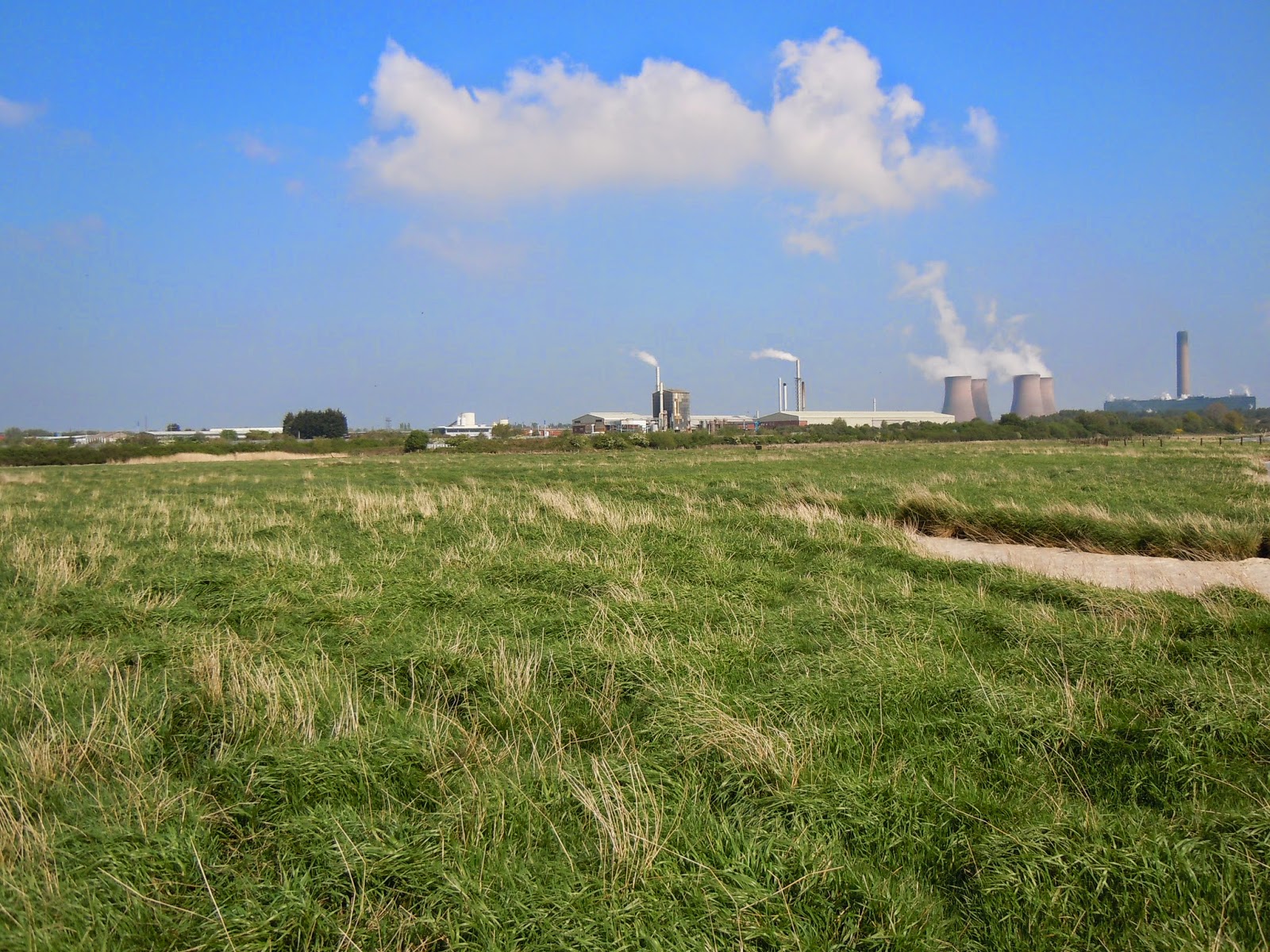The Mersey gateway project is a multi-million pound engineering project designing and constructing a six lane toll bridge across the Mersey estuary between Widnes and Runcorn!
A view looking away from the Estuary over the saltmarsh. Factories in the backdrop are making parts for Space Shuttles!
The need to alleviate congestion
on the outskirts Widnes town centre has been the main driving factor for bridge construction, some say however, the UK is building its
way out recession. The line of the proposed bridge crosses saltmarsh with
estuary to the east of the crossing designated as internationally under the
Ramsar Convention due to its wildfowl populations. The saltmarsh is set in peri-urban,
post-industrialised landscape with major factors in the backdrop producing
fibre optics and space shuttle nose cones allegedly. It is thought that during
the height of heavy industry in Widnes and the Mersey area, the estuary and
marsh was badly affected by pollutants with a yellow scum floating on the
surface of the regions coastal and sea waters. It was clear that the canal was
still littered with rubbish but things had improved a lot since the 70’s.
A view of the factories over the Runcorn to Latchford canal. There was lots of rubbish floating on the canal.
The
marsh has been degraded by the intersection of canals such as the Runcorn canal
transporting goods between towns for trade leading to habitat loss and coastal
squeeze. The truncated upper saltmarsh that resulted was represents
marsh typical of derelict but previously grazed marsh.
One of the natural creeks running through the saltmarsh. The only way to navigate the saltmarsh is to leap over the creeks!
The marsh become subject to a 5ha
experimental grazing project funded by the Mersey gateway environmental
trust, a charity set up to deliver environmental benefits and achieve
maximisation of ecosystem services from the saltmarsh as a mitigation measure
for the marsh disturbance, degradation and loss caused by the bridge erection. Marsh
grazing by English Longhorn cattle markedly increased primary production,
habitat creation, food production, aesthetic and recreation services when
compared with mowing bi-annually with the mechanical methods equally or less
effective than the herbivorous counterpart when it comes to removing marsh
vegetation. The marsh was home to nesting Meadow pipits and Skylarks. Flags, made of shiny tape were erected in the marsh under the proposed bridge site to actively discourage nesting during
bridge construction as any nesting bird would immediately stop construction.
This photo was taken as the tide was on the turn and started to come in. The water level was rising over our feet!!




No comments:
Post a Comment